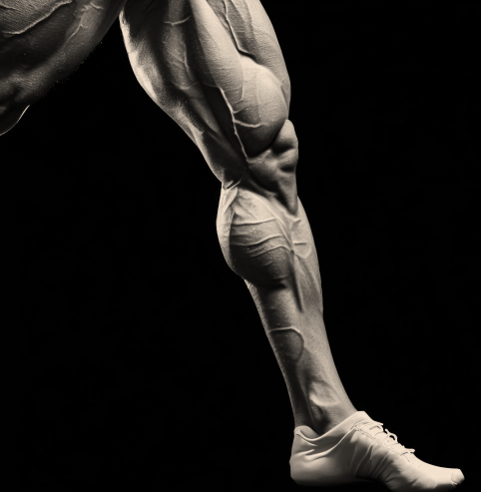Building strong, well-defined leg muscles isn’t solely about consistent workouts and the right exercises. Nutrition plays a pivotal role in muscle growth and recovery. Grasping the dietary essentials for leg muscle growth can amplify your results, ensuring your dedication in the gym doesn’t go unnoticed. Let’s delve into the key nutrients and dietary strategies to maximize leg muscle development.
Introduction: The Symbiosis of Diet and Exercise
Exercise stimulates muscle growth, but nutrition supplies the essential raw materials for muscle repair and growth. In short, your dietary choices can either enhance or undermine your muscle-building endeavors.
Macronutrients for Muscle Growth
Proteins: The Building Blocks
Proteins are indispensable for muscle repair and growth. They furnish the body with amino acids, the foundational elements of muscles. Prime sources include:
- Lean meats (chicken, turkey, lean beef)
- Fish
- Eggs
- Dairy products
- Plant-based proteins (tofu, tempeh, legumes)
Carbohydrates: The Energy Source
Carbohydrates fuel your workouts. Consuming them ensures you have the energy for rigorous leg exercises and aids in recovery afterward. Top sources include:
- Whole grains (quinoa, brown rice, oats)
- Fruits
- Vegetables
- Legumes
Fats: Essential for Hormonal Balance
Healthy fats bolster hormone production, including testosterone, crucial for muscle growth. Quality fat sources encompass:
- Avocado
- Nuts and seeds
- Olive oil
- Fatty fish (salmon, mackerel)
Micronutrients and Other Essentials
Vitamins and Minerals
Certain vitamins and minerals are integral to muscle function and recovery:
- Vitamin D: Facilitates calcium absorption, crucial for muscle contraction.
- Magnesium: Involved in muscle contraction and relaxation.
- Zinc: Bolsters testosterone production.
Water: The Overlooked Essential
Hydration is vital for muscle function and recovery. Water facilitates nutrient transport and helps stave off muscle cramps.
Supplements
While the emphasis should be on whole foods, certain supplements can augment leg muscle growth:
- Whey or plant-based protein powders for post-exercise recovery.
- Creatine to boost muscle energy and performance.
- Branched-Chain Amino Acids (BCAAs) to aid muscle recovery.
Dietary Strategies for Optimal Growth
Post-Workout Nutrition
Ingesting protein and carbohydrates after exercising can expedite muscle recovery and growth, often referred to as the “anabolic window.”
Consistent Meal Timing
Eating at regular intervals ensures a continuous nutrient supply, fostering muscle growth all day.
Caloric Surplus
Consuming more calories than expended is vital for muscle growth. However, it’s essential that these are nutrient-rich calories.
FAQs
- How much protein is required for muscle growth?
- Individual needs differ, but a general guideline is 1.2 to 2.2 grams of protein per kilogram of body weight.
- Are supplements essential for muscle growth?
- While supplements can be advantageous, they aren’t obligatory. The primary focus should always be on whole foods.
- Is it possible to build muscle on a vegetarian or vegan diet?
- Definitely! With thoughtful planning, plant-based diets can supply all the necessary nutrients for muscle growth.
Conclusion: Nourishing Your Way to Powerful Legs
Achieving robust leg muscles is a synergy of consistent training and astute nutrition. By recognizing and applying the nutrition essentials for leg muscle growth, you lay the groundwork for remarkable outcomes. Always remember, your diet fuels your muscle-building journey, so prioritize nutrient-rich choices.
Explore the wealth of knowledge in our Nutrition & Supplements Archives to grasp the intricacies of diet and its impact on leg muscle development.

